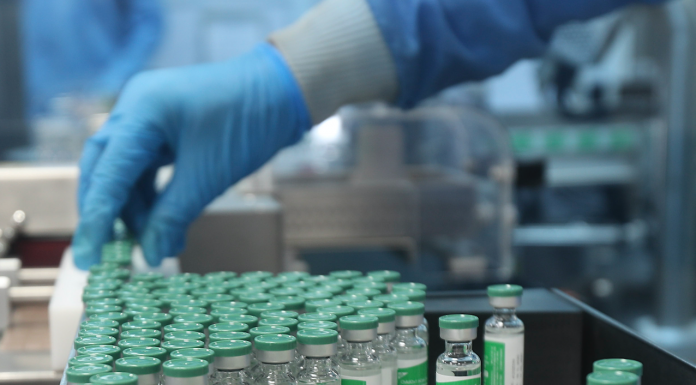NEW DELHI (AP) — The chief executive of Serum Institute of India, the world’s largest maker of vaccines and a critical supplier of the U.N.-backed COVAX facility, asked President Joe Biden on Twitter to lift the U.S. embargo on exporting raw materials needed to make the the jabs.
Vaccine makers and experts in India have been concerned that the use of the Defense Production Act by the U.S. to boost their own vaccine production was resulting in exports of critical raw materials being stopped. This was hobbling vaccine production in other parts of the world.
Stéphane Bancel, chief executive officer for Moderna, said Tuesday in an online event that export embargoes were also preventing American vaccine makers from exporting shots globally and resulting in shortages.
“If we are to truly unite in beating this virus, on behalf of the vaccine industry outside the U.S., I humbly request you to lift the embargo of raw material exports out of the U.S. so that vaccine production can ramp up,” wrote Adar Poonawalla, CEO of Serum Institute of India.
He had earlier told The Associated Press that pivoting away from suppliers in the U.S. could result in a delay of up to six months for the production of the COVID-19 vaccine developed by Novavax. Serum Institute and Novavax have inked a deal to supply 1.1 billion doses of the vaccine to COVAX to equitably distribute it across the globe.
Serum Institute of India paused exports to COVAX after a devastating surge of infections in India resulted in increased domestic demand.
Over 200,000 new infections were detected in the past 24 hours and major cities, like Mumbai and New Delhi, are under virus restrictions. Hospitals are overwhelmed and authorities are scrambling to try and vaccinate enough people to slow down the spread.
But in doing so, India relies heavily on AstraZeneca shots made by Serum Institute of India.
Poonawalla had said the unavailability of the raw materials, such as the specific medium needed to grow microorganisms, would prevent Serum Institute from scaling up the production of the vaccine developed by Novavax.
The company had been planning to make up to 40 million shots of the vaccine monthly.
Ramping up the production of this shot could also help India.
Novavax has applied for authorization of the vaccine to regulators in Europe, the U.S. and the World Health Organization. If approved, India would be able to use the shot under new regulations that make it easier to greenlight vaccines that have received the nod by the U.K., the U.S., Europe, Japan or WHO.



